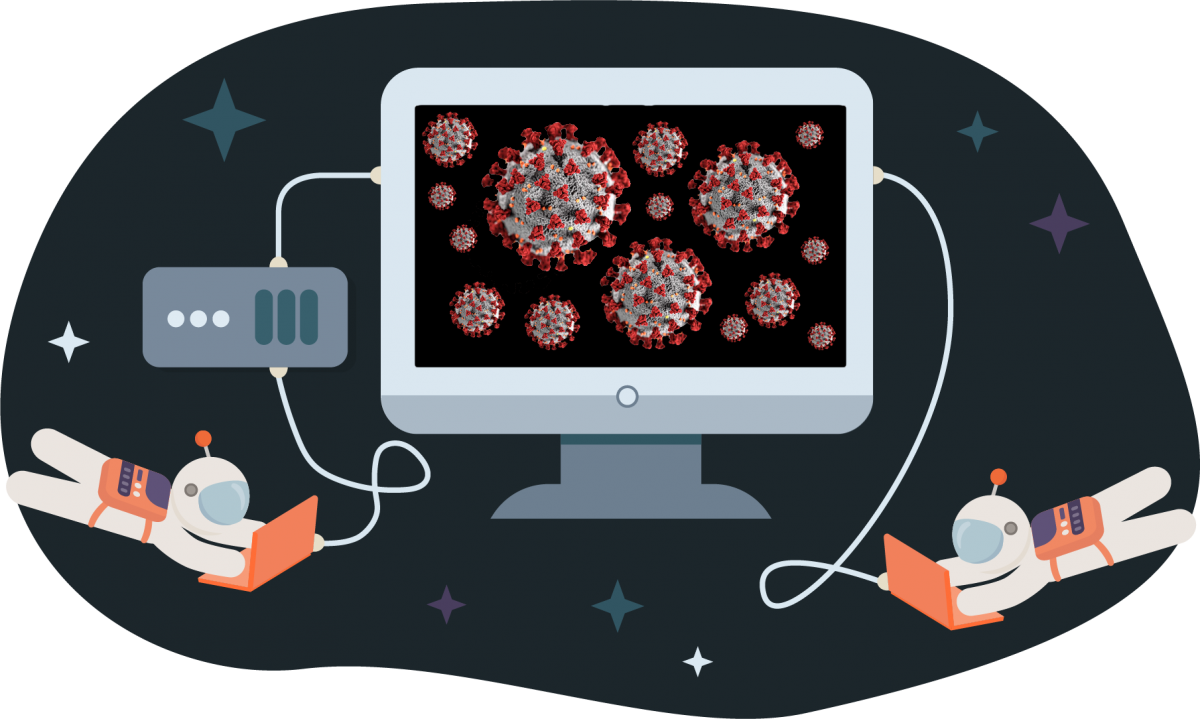Latest News on the Postman COVID-19 API Resource Center
When the world started shutting down this spring due to COVID-19, the Postman team got to work understanding how we could help in the fight against the virus. After some deliberation, we began developing a handful of valuable API collections built around the Twitter API, the News API, the COVID-19 Tracking Project, and other existing APIs we found to be useful. Publishing them all in a single place, we launched the Postman COVID-19 API Resource Center to further jumpstart the conversation around how APIs can be used to address the current pandemic.
And, just as the global pandemic isn’t over, our work growing the Postman COVID-19 API Resource Center isn’t over, either. Now featuring more than 50 API collections, here’s how the resource center continues to evolve with help from our community.
The beginnings of the COVID-19 API Resource Center
To help crowdsource solutions from around the world, we published the Postman COVID-19 API Resource Center on GitHub, making the site available as an open source project while also calling for API submissions from our global community using GitHub issues. We kicked off the project with 15 collections. Since then, the API community has submitted 36 more API collections, resulting in a current total of 51 collections—with 25 more labeled as “api-tasks” in the GitHub issues ready for Postman Collections to be created by the community or Postman team.
We consider this effort a huge success when it comes to mobilizing the API community to demonstrate how APIs can make a difference in a pandemic. Over the past couple of months, we’ve managed to publish new APIs as part of the COVID-19 resource center—but we still want to crank up the volume by investing more work into the resource center page and by bringing in our partners to help move the COVID-19 API conversation forward.
How we’re continuing the work
To help continue making it as useful as we possibly can, we’ve made enhancements and reviewed the entire collection to better understand the types of resources being made available.
Here’s how the latest version of the Postman COVID-19 API Resource Center is organized:
- Featured API Collections: Highlighting the most useful, highest quality, and relevant API collections that have been submitted to the resource center.
- API Visualizations: Surfacing the individual requests that utilize the Postman visualizer to help make sense of the data being returned.
- Available Resources: Aggregating all of the resources being made available across all of the APIs, helping reveal what is possible across the APIs.
- Partner Showcase: Providing an area to showcase our partners who are helping move the COVID-19 resource center forward.
- Additional API Collections: Listing the rest of the collections that still provide value, but might not always be the most complete or robust.
- Stories from the Toolbox: Allowing the community, Postman, and our partners to tell the stories behind each of the APIs and collections.
We’ve continued to leverage direct feedback from our community by operating the COVID-19 resource center on GitHub. We’re also calling out for developers to help find or create meaningful datasets and transform them into usable APIs then defined as a Postman Collection. This effort has raised the bar in pushing developers to improve upon their APIs and the collections they are contributing to the resource center with the help of these resource center additions:
- Submission Template: A Postman Collection Submission Template to help developers build a better collection, providing very detailed guidance on what constitutes a useful collection for any API.
- Rating System: A system that adds the ability to track the uptime and availability of each API, and apply a rating to each of the APIs, allowing them to be ranked and sorted helping potential consumers find just the right API and data.
- Provenance Linking: A system of adding links to the data sources of each of the APIs, providing more provenance for each of the APIs, helping validate where the data came from, and showing the overlapping sources of information across all the APIs.
Partners in COVID-19 times
Two of Postman’s partners have joined us in making the COVID-19 API Resource Center even more useful by curating and refining the collections, and by creating an official Submission Template and API rating system:
- Metadata Technology North America Inc. (MTNA): MTNA has emerged as an indispensable data partner by providing the Submission Template that helps guide developers to provide a more useful collection. The template supports the delivery of better APIs from existing COVID-19 data sources and raises the bar on what is an acceptable Postman collection.
- APIMetrics: The APIMetrics team is helping us monitor COVID-19 APIs and rate each API by its availability and reliability. This feature is making the COVID-19 resource center a more collaborative effort building on the existing work of the Postman community.
Join the conversation
Our goal with the COVID-19 resource center is to continue showcasing what APIs can do when it comes to educating and informing people about the virus—and to simply make people’s lives easier in these difficult times. That means we’re still looking for more COVID-19-related APIs and help in creating Postman Collections for the APIs already submitted via the GitHub issues.
We’d love your participation. To get involved, just head over to the COVID-19 GitHub repository and look through the open tasks, or feel free to suggest your own idea—or an existing API or dataset you’ve come across—for this important project. Think outside of the box: The APIs we’re looking for don’t have to be all about COVID-19 data, so use your imagination when it comes to brainstorming solutions that can come in handy.
Tell us your ideas and what you are doing with the resources made available in the Postman COVID-19 resource center in a comment below, or submit an idea through our COVID-19 GitHub repository.

What do you think about this topic? Tell us in a comment below.